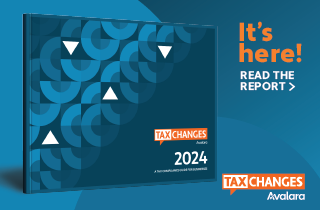What is the Streamlined Sales Tax Project (SSTP)?
The Streamlined Sales and Use Tax Project (SSTP) was initiated in March 2000 in order to develop a sales and use tax system that eases the burden of tax compliance for all retailers. Streamlined Sales Tax is a national effort by state and local governments and the private sector to simplify and modernize sales and use tax collection and administration. This national effort produced the “Streamlined Sales and Use Tax Agreement.”
The mission of the SSTP is to develop measures to design, test, and implement a sales and use tax system that radically simplifies sales and use taxes. The purpose is to establish uniform sales and use tax standards, modernize sale and use tax laws, and make the burden of compliance the same for all sellers and all types of commerce.
The Project has worked to improve administrative procedures, provide uniform definitions within the tax laws, and provide technology systems for the tax collections that are in line with current technology. The SSTP agreement is focused on improving sales and use tax administration for both local businesses and remote sellers for all types of commerce.
The Project is created and comprised of participating governments of most of the 50 states and the District of Columbia. SSTP impacts all companies doing business in a SSTP state as the laws that are enacted to comply with the SSTP Agreement affect all taxpayers.
State involvement in the Project exists at varied levels based on participation in the project and conformance with the rules of the Streamlined Sales and Use Tax Agreement. The three levels of participation in the Agreement are: Full Membership, Contingent Membership, and Advisory States.
Full Member states are states that submitted a petition for membership into the Streamlined Sales and Use Tax Agreement along with submitting a certificate of compliance. These states were deemed in full compliance with the Agreement’s requirements with a current or active effective date. As of November 1, 2018, the Full Member states of the Agreement are:
- Arkansas
- Georgia
- Indiana
- Iowa
- Kansas
- Kentucky
- Michigan
- Minnesota
- Nebraska
- Nevada
- New Jersey
- North Carolina
- North Dakota
- Ohio
- Oklahoma
- Rhode Island
- South Dakota
- Utah
- Vermont
- Washington
- West Virginia
- Wisconsin
- Wyoming
A state qualifies for Contingent membership if it is found to be in full compliance with the Agreement except that its conformity provisions are not yet in effect, but will be within twelve months of the state’s admission as a contingent member. A contingent member has full voting rights on the board and will become a full member once its laws come into effect. As of October 1, 2018, the only current contingent member is Tennessee.
States gain advisory status through enabling legislation or regulations by their state. Advisory states have full rights in the project, participate in work groups, and have voting status on the proposals considered by the SLAC. They serve in an ex officio capacity on the Governing Board, but do not have a vote on the Governing Board.
If a taxpayer voluntarily registers under the SSTP system, it has some additional administrative benefits that are not available to all taxpayers currently such as simplified reporting and a consolidated registration across all participating states.
To find more on the SSTP agreement, visit the Streamlined Sales Tax Project website at http://www.streamlinedsalestax.org/
Looking for more information? Check out the following resource:
- Find up-to-date news items on SSTP in our News & Tips section

